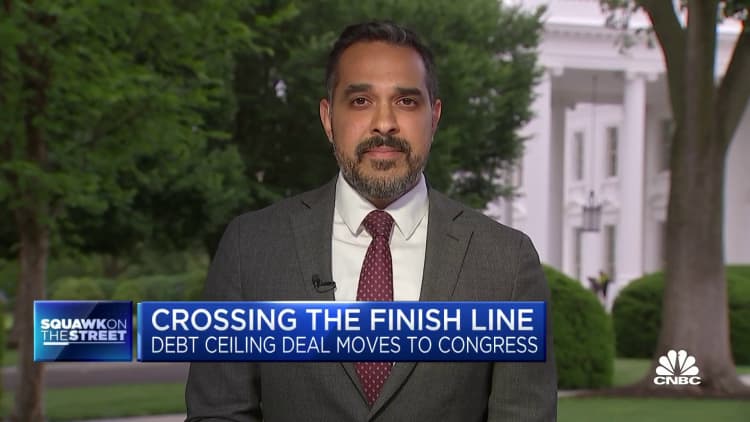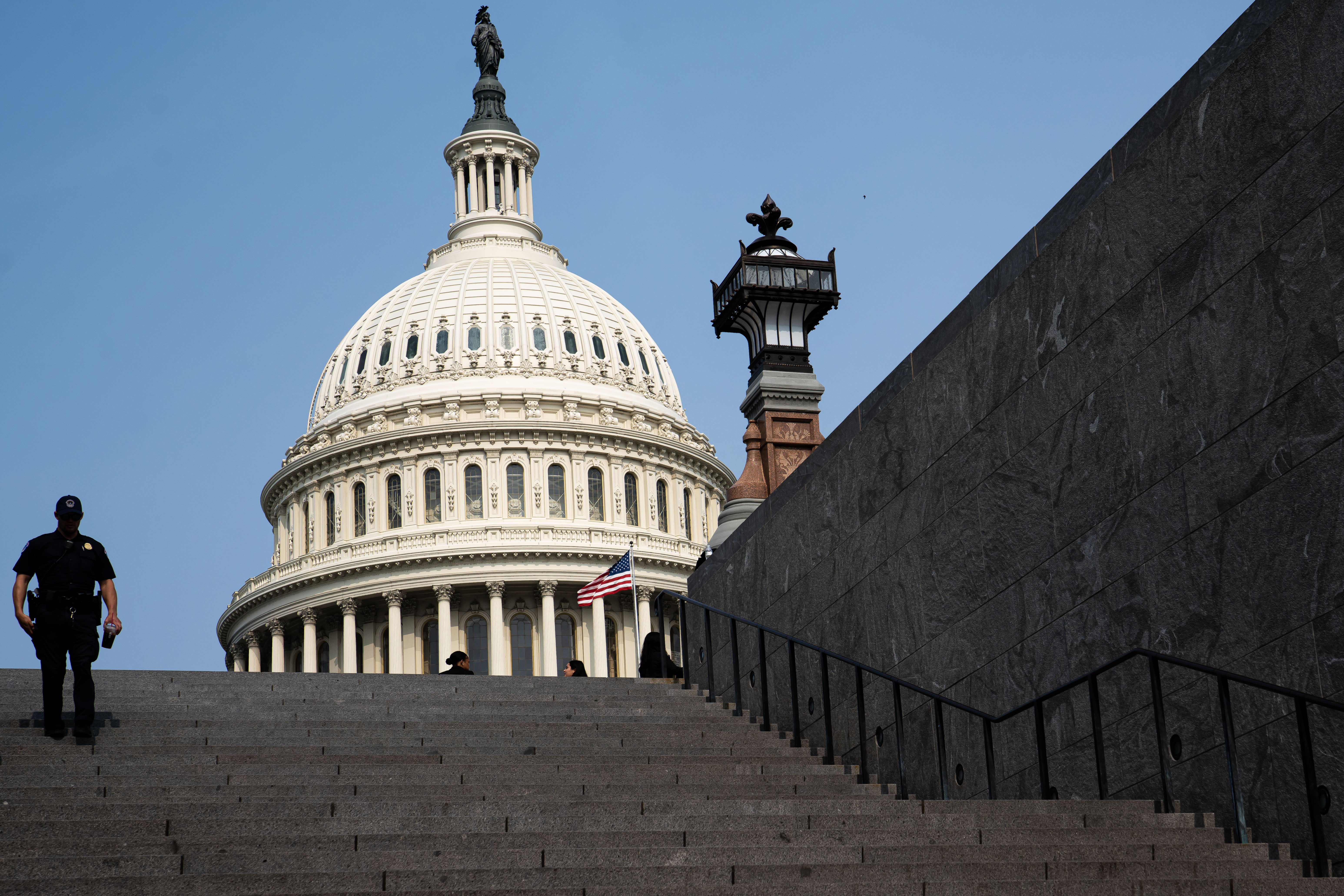
WASHINGTON — A compromise bill to raise the debt ceiling passed its first major test Tuesday night in the House Rules Committee, where it advanced to the House floor on a 7-6 vote, with two of the panel’s nine Republicans dissenting. here.
A floor vote on Fiscal Responsibility Act is planned for around 8:30 pm ET Wednesday, according to a tentative House voting schedule.
related investment news


The latest round of support from GOP Rep. Thomas Massie of Kentucky cleared the way for the bill to be approved by seven of the nine Republicans on the committee. The panel’s makeup leans heavily toward the majority party, 9-4, a setup meant to ensure the legislation is not held up by a few dissenters who side with the minority.
Moments before the committee cleared the bill, the nonpartisan Congressional Budget Office released its assessment of the bill’s impact on the federal debt and deficits. CBO estimates that if the law is “enacted and the appropriations subject to the limitations” are implemented as planned, “budget deficits would be reduced by approximately $1.5 trillion” over the next decade.
The CBO’s “score” was in line with bipartisan expectations, but the additional certainty provided by the numbers could help bolster the bill’s support in a full House vote on Wednesday.
The legislation is the product of a deal made by House Speaker Kevin McCarthy and President Joe Biden to cap federal baseline spending for two years in exchange for Republican votes to raise the debt ceiling after next year’s election and in 2025.
The bill still needs to pass the full GOP-majority House and the Democratic-controlled Senate before Monday, when the Treasury Department projects that the United States is unlikely to have enough cash to meet its obligations to debt
On Tuesday, a bloc of more than 20 conservative Republicans announced they would oppose the compromise deal. They accused McCarthy of surrendering the White House in exchange for “cosmetic” policy changes, and not the change they were promised.
A hardline subset of this group railed against the deal on social media and at a press conference outside the Capitol.
“It’s not just that every Republican should vote against it. It’s a little more than that. It’s a race-defining vote for every Republican,” said GOP Rep. Dan Bishop, NC
Several prominent conservative groups also announced opposition to the bill on Tuesday, saying they would measure or “mark” GOP lawmakers by how they vote on it. The libertarian-leaning group FreedomWorks, the anti-tax Club for Growth and the conservative Heritage Foundation all struck a deal.
As the day progressed, opposition to the bill developed into a sharper criticism by some in the party of McCarthy’s leadership.
Rep. Chip Roy, R-Texas, speaks at a House Freedom Caucus news conference to oppose the debt limit deal outside the US Capitol on Monday, May 30, 2023.
Bill Clark | CQ-Roll Call, Inc. | Getty Images
“Speaker McCarthy should pull this bad bill. We should stop taking this bill now,” said GOP Rep. Chip Roy of Texas, a member of the Rules Committee, at a news conference. “And whatever happens, there will be a reckoning about what happened.”
Bishop told reporters that “nobody in the Republican conference could have done a worse job” of negotiating the deal than McCarthy did.
Roy and Bishop are not the only far-right conservatives who have openly threatened to oust McCarthy as House speaker if the debt limit legislation passes. But whether they will follow through on the threats remains to be seen. Under new rules this year, a Republican lawmaker can bring a vote of no confidence in McCarthy to the floor.
Some Democrats are also skeptical of the bill, which contains new work requirements for food stamps, as well as reforms that make it easier to get energy permits, and cuts to discretionary spending. But progressive leaders in the House stopped short of urging their like-minded members to oppose the bill.
“Republicans did not win any major concessions on spending,” Rep. Pramila Jayapal, D-Wash., chairwoman of the 100-member Congressional Progressive Caucus, said in a call with reporters Tuesday. “There is no significant debt reduction here…what [Republicans] do get are some of their strongest ideological priorities.”
Jayapal acknowledged that the bill’s spending limits would require Congress to cut funding for some local programs. “When it comes time to write the appropriations bills, there are going to be some very, very difficult choices to be made,” he said.
As of Tuesday, the CPC was still deciding whether to “take an official position” on the bill, he said.
The message from the White House was equally low-key, with an emphasis on all the GOP demands that were not included in the bill, not which Democratic priorities were included.
“It’s usually a sign of a good compromise if there are some people who are a little bit unhappy on each side,” National Economic Council Deputy Director Bharat Ramamurti told CNBC.
“I think the macro economic impact of this deal is probably pretty minimal,” he said, adding that the deal is about as good as Biden could hope for in a bill that could pass the GOP-controlled House.
The Office of Management and Budget also issued a formal policy statement Tuesday urging House members to support the bill, saying it “represents a bipartisan compromise to avoid a first-time default .”
